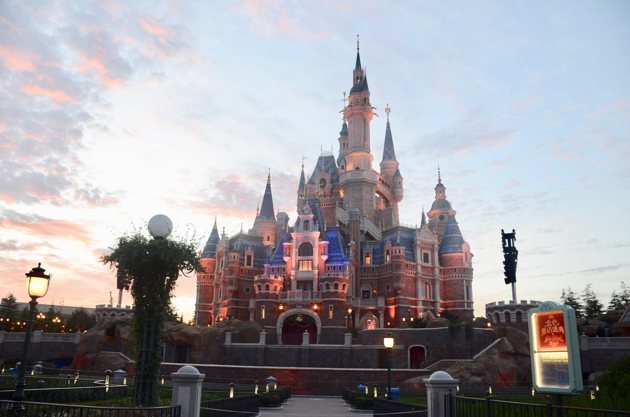
Shanghai Disneyland (Photo/NBD)
Apr. 26 (NBD) -- Overseas copyright holders of popular IPs (Intellectual Property) are entering the Chinese market one after another, in a bid to promote brands as well as make profits, said Lin Huanjie, president of the Institute for Theme Park Studies in China.
It's noticed that well-known global theme park brands including New York-based Six Flags, Universal Studios and British Merlin Entertainments PLC have established their presence in China via brand licensing, franchising and exclusively funded theme parks ever since the opening of Disneyland in Shanghai.
Most recently, Entertainment One, copyright owner of Chinese audiences' beloved Peppa Pig, announced its plan to build a theme park in China to welcome the Year of the Pig.
Lin predicted China's theme part industry is to enter a "golden era", as global players come to tap the market.
A mature IP needs rich soil in order to take root and bloom. According to the report on the trend of global tourist market released in 2016 by Euromonitor International, a strategic market research provider, turnover of China's theme parks is estimated to touch 12 billion U.S. dollars and the daily average number of tourists is projected to reach 330 million by 2020.
Such ample opportunities in China's theme park market has appealed to not only foreign but also domestic players. Over 300 theme parks funded by domestic capital have arisen over the past several years, mostly in the Yangtze River Delta region.
It's worth noting that Disneyland and other overseas theme parks are making profits majorly from sales of IP-based derivatives and other services rather than ticket proceeds.
However, domestic theme park brands depend heavily on gate receipts which account for over 70 percent of the income, introduced Lin.
With regard to this, Lin suggested domestic theme parks should, on one hand, enhance service quality, diversify derivatives and improve brand image in order to be more attractive to tourists, and on the other hand, develop distinct and themed products.
Some industry practitioners believed the fierce competition between foreign and domestic theme parks would bring both challenges and opportunities.
Liu Fudao, general manager of Zhejiang Insight Angel Paradise Management Ltd, operator of the Hello Kitty theme park in Hangzhou, regarded the relationship between foreign and domestic theme parks as symbiotic rather than competitive, saying that theme parks, as branches stretching out from the whole global industry, should conduct differential competition and operation through making concerted efforts and learning from each other. In this way, the entire industry could advance with the times and theme park operators could gain a foothold in the market, Liu further explained.
Email: gaohan@nbd.com.cn


 川公网安备 51019002001991号
川公网安备 51019002001991号





